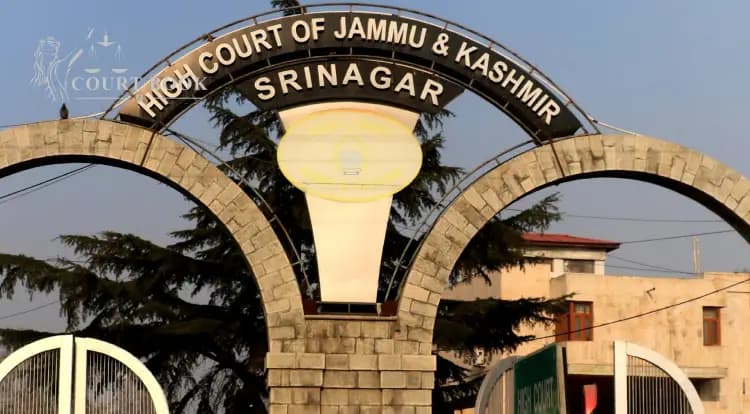The Jammu and Kashmir and Ladakh High Court recently quashed an FIR lodged in a matrimonial dispute, invoking its inherent powers under Section 528 of the Bhartiya Nagarik Suraksha Sanhita (BNSS). The court clarified that these powers, which correspond to Section 482 of the repealed Code of Criminal Procedure (CrPC), override the limitations set under Section 359 of BNSS (earlier Section 320 of CrPC), particularly when justice demands.
Background of the Case
Justice Mohd Yousuf Wani passed the order in CRM(M) No. 125/2020, filed by the petitioner Mohammad Ismail Koka. The case involved FIR No. 100/2020, registered at Police Station Zainpora, Shopian under Sections 452 (trespass) and 376B (marital rape) of the Indian Penal Code. The petitioner claimed that he was falsely implicated by his estranged wife (Respondent No. 3), and that the FIR was a consequence of familial pressure following a Khula Nama (divorce).
According to the petitioner, the marriage was solemnized in 2018 but disputes arose, leading to separation and mutual agreement to end the marriage. A formal compromise deed dated 13.09.2022 was signed and submitted before the court.
Read also: Justice Arun Palli Sworn In As Chief Justice Of Jammu & Kashmir And Ladakh High Court
Counsel for the petitioner, Advocate Shahbaz Sikander, argued that the dispute was private in nature, had been mutually resolved, and that continuation of criminal proceedings would amount to an abuse of process. He cited notable Supreme Court rulings, including:
- Parbatbhai Aahir vs State of Gujarat (2017)
- Kapil Gupta vs State (NCT of Delhi) (2022)
These cases upheld the principle that even non-compoundable offences could be quashed by the High Court in exceptional cases to meet the ends of justice.
The State counsel, Deputy Advocate General Mubashir Majid Malik, opposed the petition, arguing that offences under Sections 452 and 376B IPC are non-compoundable, and quashing on the basis of a settlement could undermine public interest.
Justice Wani, however, held that the extraordinary power under Section 528 BNSS is preserved to prevent miscarriage of justice. He emphasized:
"Provisions of Section 320 of the Code (Section 359 BNSS) do not restrict but only limit the powers of this Court... Extraordinary powers are to be used in exceptional circumstances to meet the ends of justice."
He further clarified that matrimonial disputes, when resolved amicably, and not involving heinous crimes or societal impact, deserve pragmatic judicial intervention.
The court referenced several key Supreme Court judgments, including:
- Gian Singh vs State of Punjab (2012) “The High Court must consider whether it would be unfair or contrary to the interest of justice to continue with the criminal proceeding despite settlement…”
- Narender Singh vs State of Punjab (2014) “Power conferred under Section 482 of the Code is to be distinguished from the power to compound under Section 320…”
- Kapil Gupta vs State (2022) “Though in heinous crimes like rape, powers of quashing should not normally be used, in peculiar facts and to save the victim from further agony, quashing may be justified.”
- Satish Mehra vs Delhi Administration (1996) “When the judge is fairly certain that there is no prospect of conviction, valuable time of the court should not be wasted…”
- Madan Mohan Abott vs State of Punjab (2008) “In purely personal disputes, courts should ordinarily accept the terms of compromise even in criminal proceedings.”
- Jagdish Chanan vs State of Haryana (2008) “When it is unlikely that prosecution will succeed and public interest is not involved, continuing proceedings is futile.”
Considering that the complainant no longer supported the prosecution and the matter had been mutually settled, the High Court concluded:
“For the foregoing discussion, the instant writ petition is allowed and the FIR bearing No. 100 of 2020 dated 29.07.2020, registered with Police Station, Zainpora Shopian, under Sections 452 and 376B of IPC, along with any subsequent criminal proceedings is quashed.”
The court added:
“Criminal litigation between near relatives or co-sharers more often originates from civil/matrimonial disputes... directing the quashment of proceedings by invoking inherent powers... in such matters of personal nature not involving heinous offence is likely to meet the ends of justice.”
Case Title: Mohd Ismail Koka Vs State of J&K















